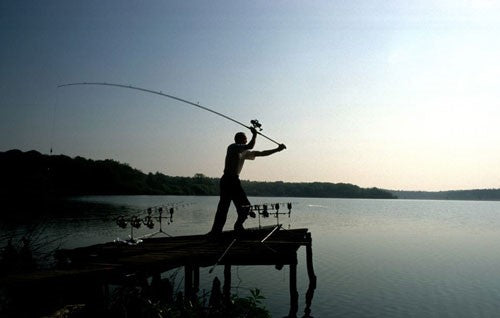Wednesday, 8th June 2016
Many anglers rub their hands on hearing a gale forecast, but I believe that 'big winds invariably bring good fishing' is something of an old wives tale.
In fact, I have done as well when the pressure has been sky high as when it has been scrapping along at 950mb or lower.
So...High and Low Pressure. How they affect the carp angler?
One of the questions that always seems to crop up on a regular basis is the effect of air pressure on carp fishing. Should it be high, should it be low, should the barometer be rising or should it be falling. The general consensus seems to be that carp feed more actively in low pressure conditions. Do they really? Well I don’t agree! I have caught just as many fish when atmospheric pressure has been sky high as I have when the bottom seems to have fallen out of the barometer!
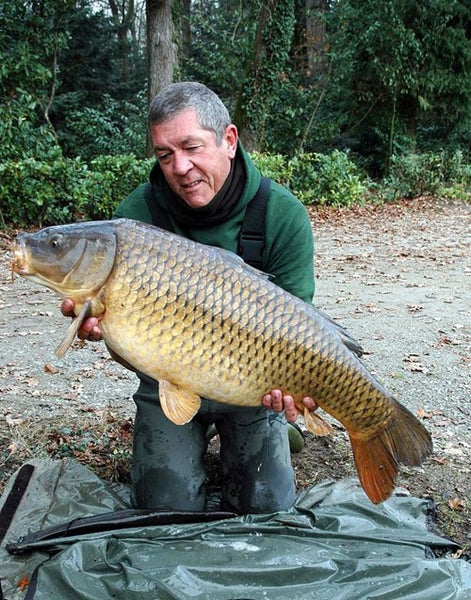
In fact at my age I am happier fishing in the calm and usually sunny conditions of a high pressure system than I am sitting it out in a gale of wind with the rain lashing down. I like to get my shirt off and feel the rays when I am fishing but don’t think for one moment that this is the reason why I am happy to fish in high pressure. No, the reason is, I don’t think it makes a blind bit of difference! The exception is during the coldest months of the year when I definitely prefer clear skies and light winds as over the many years that I have been carp fishing I have actually found these conditions to be more productive. In fact, I will go so far as to say that I honestly believe that this whole business of high pressure equals bad fishing and low pressure equals good is a misconception. Sadly it has acquired the status of unquestioned fact within the carp world.
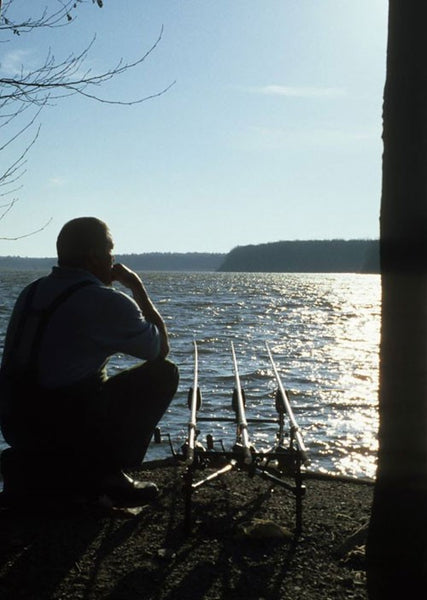
As far as most carp fishermen are concerned, low pressure usually brings with it strong winds accompanied by rain, whereas high pressure is generally seen as bringing calm weather with little wind and dry conditions. OK, that’s generally the case but not always! What about the violent summer storms that sweep across the continental mainland every summer? These are always associated with cyclonic (high pressure) conditions and they usually occur during periods of hot settled weather. I have fished in these summer storms scores of times and in my experience carp go ape during them and especially just after the storm has passed.
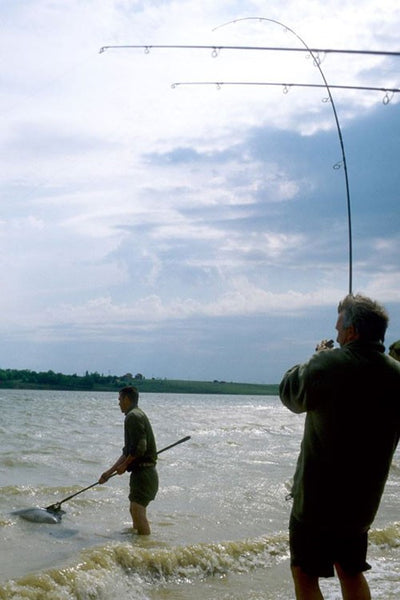
While I totally accept that a big blow with heavy rain can stir the fish up, there are equally just as many times when those conditions fail to bring the carp onto the feed. Indeed, I have well recall a trip when heavy rain had just the opposite effect. I had been catching steadily for four days in bright sunshine with no wind but on the fifth day the weather changed completely; it rained continuously for 24 hours and the wind blew hard from the southwest. My fellow anglers rubbed their hands in anticipation but in fact the change in the weather turned the carp off as if someone had thrown a switch.
Do you ever browse the carp fishing forums on the Internet? If so I am sure you will have noticed posts along the lines of, “Low pressure, rain and a big wind forecast in a couple of days. Anyone else getting excited? I’m off to the lake now to get on the breeze and make sure I am in the best swim. Post your results when you get back.” A few days later the same posters are back and many have nothing to show for their optimism.
Consider this: Do carp get caught because it’s wet and windy or in spite of it? Am I the only guy who actually prefers it dry and warm? If I consistently failed to catch carp in high pressure conditions I could perhaps find some justification in the belief that carp feed best in unsettled weather, but the fact is I catch carp in all kinds of weather.
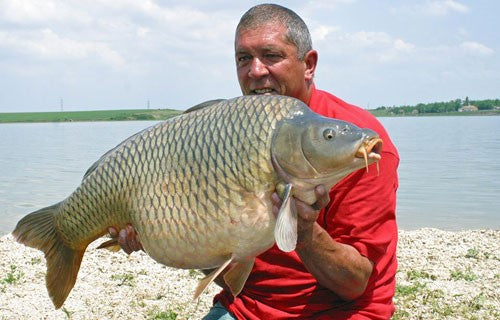
Can I just make a suggestion? Don’t be put off from going fishing because of high pressure. If you are stuck in the groove of the nine-to-five merry go round you’ll have no choice anyway but don’t be downhearted if the weatherman forecasts high pressure and settled weather for your all-to- short weekend session. It’s not set in stone that it has to be low pressure in order to catch. I could give you countless examples of when I have caught loads of good fish in what most people consider to be unfavourable conditions so my advice is, don’t listen to the weather man in the first place and just go out and do it!
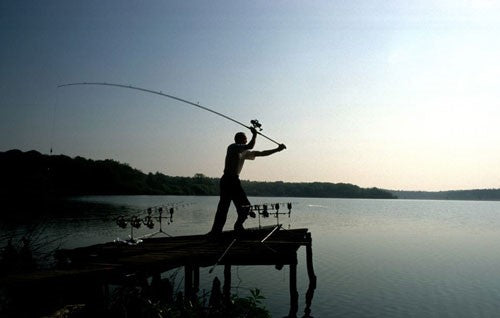
A closely related and widely held belief is that carp don’t like extremes of temperature. Now here I will agree, but only up to a point. You see, carp are remarkably tolerant of both extremes of both very high and very low temperatures. Let’s face it; you can catch them from under the ice in the depths of winter or off the top in the height of summer with the sun blazing down in heat wave conditions.
Let’s just consider winter carping for a moment, as winter is not far off. There was a time when winter carp fishing was generally regarded as a waste of time but then along came first, “Carp and The Carp Angler” by George Sharman, and then "Carp Fever" by Kevin Maddocks. Both George and Kevin use well documented evidence to show us that carp happily feed in low water temperatures and nowadays winter carp fishing is widely practised. Indeed, some of the biggest carp of the year are reported during the coldest months.
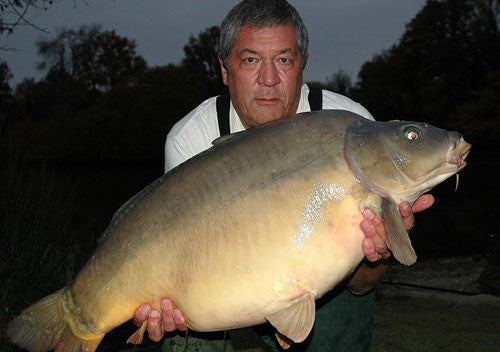
It is important to remember that water is at its most dense when it is at 4 degrees C and at its least dense at 0 degrees C whereupon it turns to ice and floats on the surface, thus forming an isolating blanket for the lake water below. Even if the whole surface is frozen over the water under the ice will be warmer and denser and will sink. OK, 4 degrees C is pretty cold but it is not too cold and even in the depths of winter carp still have to feed sometime. They cannot exist for weeks on end without eating so even if the lake is frozen over you are still in with a chance, assuming you can break the ice.
I have found that the best winter feeding time is the two-hour period from around 13.00h until about 15.00h. If the sky is clear during those two hours then even the smallest amount of sunshine can have a positive effect on the water temperature thus triggering an urge to feed, (this point was made strongly in “Carp Fever”). This is why I prefer clear skies and no wind in the winter months, as the sun gets to work immediately without having to compete with wave action and clouds that mask the its heat.
By complete contrast, in the summer months water temperatures can easily exceed twenty-five degrees C. Carp are perfectly able to tolerate these higher temperatures, but warmer water is less capable of sustaining high levels of saturated oxygen. As a result the carp tend to be less active, preferring to lie up in weeds or snags until the heat of the day is past and the water temperature drops slightly with the coming darkness. This is often the reason why carp fishing can sometimes be better at night during July and August. But don’t neglect those surface baits. I have known carp to feed really well off the top in even the hottest temperatures.
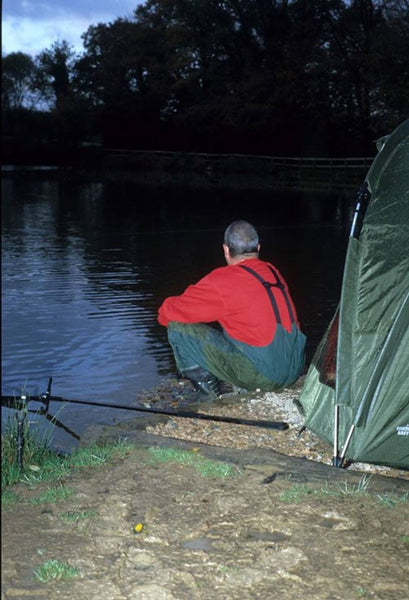
Dependant on the season carp will often frequent cooler or warmer areas of water within a lake. I am sure when you have been for a swim in a lake you will have noticed that some layers of water feel distinctly cooler or warmer. This effect is known as the thermocline and it may often be quite local and affect only a small part of a lake. However, it is not uncommon to find quite a number of carp holding up within a small area where the water temperature may be a few degrees C warmer or cooler.
Too many anglers allow the weather conditions - specifically high or low pressure - to dictate whether they fish or not. Believe me, carp don't read our rule books and as I hope these photos have shown high pressure does not mean the kiss of death on your fishing.
Written by Ken Townley

